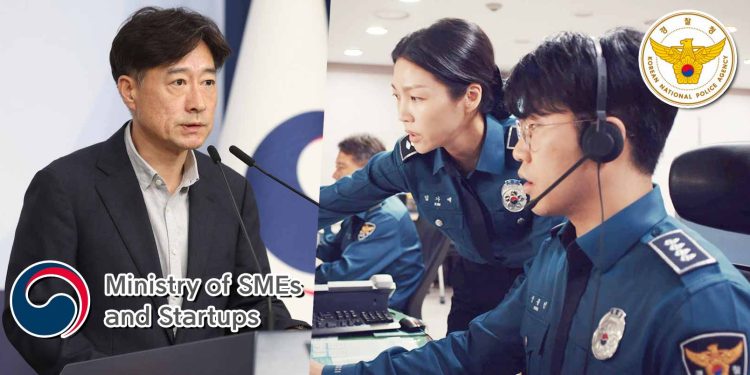Technology theft remains one of the biggest threats to Korea’s innovation economy, undermining startups and deterring foreign investment. Now, a new alliance between the Ministry of SMEs and Startups and the Korean police signals a decisive shift. By treating SME technology theft as a matter of criminal enforcement rather than weak administrative oversight, Korea is reshaping how innovation is protected and scaled.
Korea Fast-Tracks SME Technology Protection with Police Support
On September 30, the Ministry of SMEs and Startups (MSS) announced a new collaboration with the Korean National Police Agency (KNPA) to strengthen protection against technology theft targeting small and medium-sized enterprises (SMEs).
The initiative introduces a fast-track system linking the ministry’s administrative examinations with police criminal investigations, aiming to provide faster relief and stronger deterrence for victimized companies.
Korea Raises the Stakes: From Weak Remedies to Real Deterrence
Until now, MSS investigations were limited to cases meeting strict trade secret thresholds — non-public, confidential, and economically valuable technologies. Even when violations were found, outcomes were often restricted to corrective recommendations with little enforcement power. Critics argued that such measures failed to prevent repeat offenses or deter intentional theft.
The new system closes this gap by linking administrative findings to immediate police involvement. This not only allows faster investigations into misappropriation but also extends to related financial crimes such as breach of trust and embezzlement.
For SMEs struggling with resource constraints, the collaboration signals a government-backed effort to provide both legal recourse and preventive protection.
Government and Police Speak Out on Protecting Startup IP
Park Yong-soon, Director-General for Technology Innovation Policy at MSS, stressed the intent to strengthen remedies for vulnerable firms,
“We expect this cooperation with the police to ensure that companies suffering from technology theft can receive swift and effective relief.”
A representative from the KNPA’s Security Investigation Command echoed this stance,
“Through this collaboration, the police will serve as a reliable shield for companies whose technologies have been stolen, ensuring they can operate with confidence.”
Why Stronger IP Enforcement Could Reshape Korea’s Startup Future
For South Korea’s startup ecosystem, this collaboration reform addresses a persistent vulnerability.
Technology leakage has long been cited as a deterrent for founders considering sensitive R&D ventures in the country. By introducing a fast-track between administrative and criminal enforcement, Korea signals that intellectual property theft will be treated not as a minor civil dispute but as a serious economic crime.
This move also strengthens investor confidence. Global venture capital often weighs IP security as a risk factor when entering emerging markets. The ability to enforce technology rights quickly may encourage cross-border investment, particularly in deep-tech, AI, and semiconductor-related startups that are increasingly attractive to foreign investors.
Policy Reform as a Test of Korea’s Innovation Credibility
In the end, the MSS – Police collaboration underscores not only administrative or policy reform but also serves as a test of whether Korea can create a trustworthy environment for startups and SMEs to innovate boldly without fear of predatory practices.
It also sends a message to global founders that the country is now moving toward a compliance-first, investor-friendly environment where IP protection will no longer stop at advisory remedies but extend to criminal enforcement.
And ultimately, this initiative demonstrates to policymakers and investors that Korea aims to position itself as a secure and competitive hub in the global startup economy.
🤝 Looking to connect with verified Korean companies building globally?
Explore curated company profiles and request direct introductions through beSUCCESS Connect.
– Stay Ahead in Korea’s Startup Scene –
Get real-time insights, funding updates, and policy shifts shaping Korea’s innovation ecosystem.
➡️ Follow KoreaTechDesk on LinkedIn, X (Twitter), Threads, Bluesky, Telegram, Facebook, and WhatsApp Channel.






